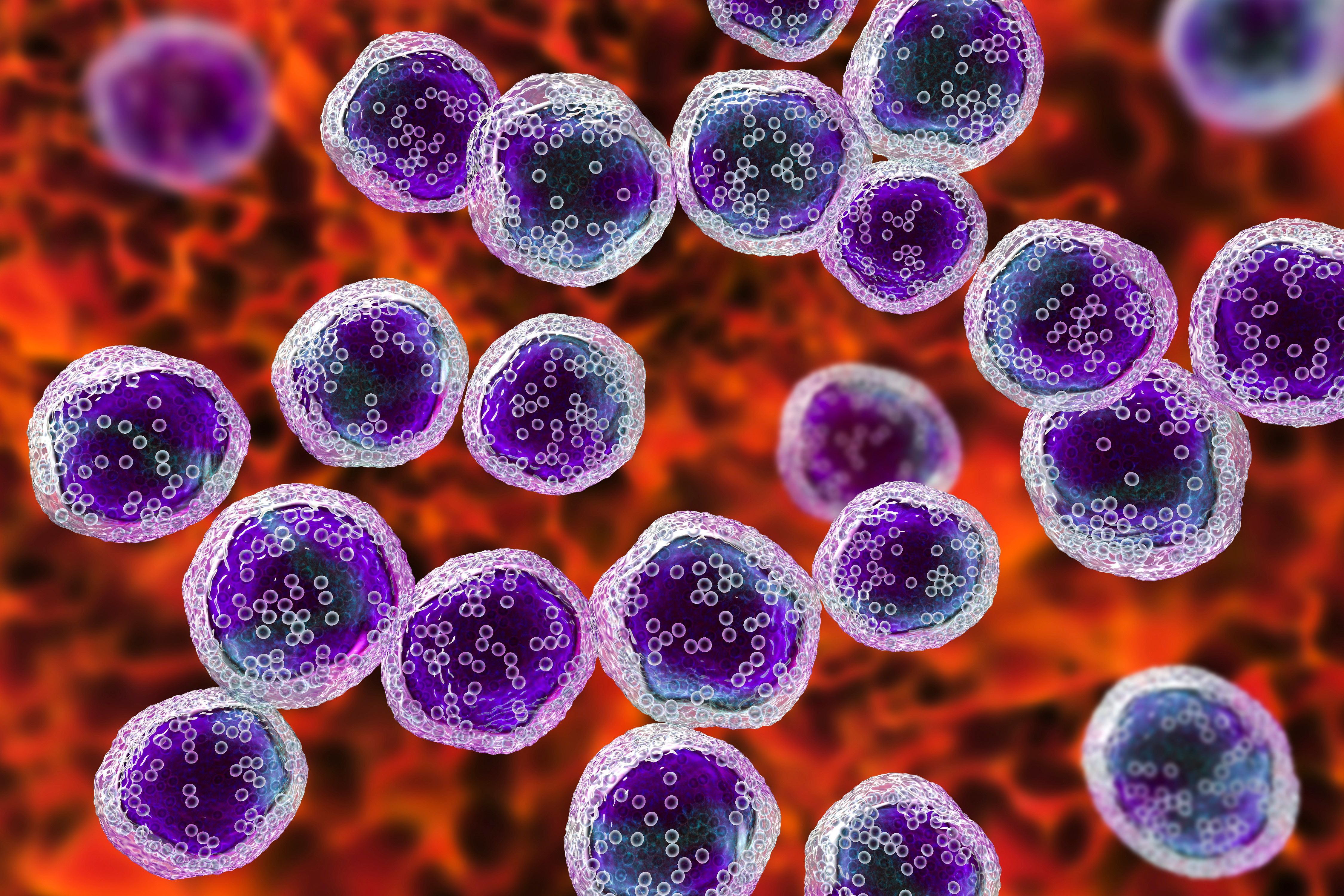News
Article
CAR-T Cell Therapy is Safe, Effective in DLBCL, Including High-Risk Patients
Author(s):
The authors note that CAR-T cell therapy could change the treatment standard for patients with DLBCL, who previously had few options if standard chemotherapy treatment was ineffective.
Study results demonstrate that CAR-T cell therapy—a type of immunotherapy that genetically reengineers T cells to help the immune system find and kill cancerous cells—is a safe and effective treatment for diffuse large B-cell lymphoma (DLBCL). In addition, this therapy was found safe in patients who are considered high risk due to their comorbidities. The study’s findings will be presented at the American Society of Hematology (ASH) 2023 annual meeting in San Diego, California, December 9 to December 12.
Image credit: Dr_Microbe | stock.adobe.com

The retrospective study examined 5-year outcomes for patients with DLBCL receiving CAR-T cell therapy, including those who may not have met the eligibility criteria for the previous ZUMA-1 trial. The current study evaluated 298 patients who underwent leukapheresis as part of the CAR-T cell process, and also examined risk factors associated with poor survival outcomes. In addition, causes of non-relapse mortality and longer-term toxicities were evaluated.
DLBCL, which is a fast-growing blood cancer, is the most common form of non-Hodgkin lymphoma. First line therapy for DLBCL typically includes rituximab, a monoclonal antibody, 3 chemotherapy drugs, and a drug that helps kill lymphoma cells. Although the therapy is safe and can be effective, it does not always work or prevent the cancer from returning. Prior research indicates that approximately 40% of patients with DLBCL experience relapses or disease recurrences after receiving the standard therapy. The authors note that clinicians turn to CAR-T cell therapy after exhausting other frontline options.
“CAR-T has caused a paradigm shift in the treatment of patients with diffuse large B-cell lymphoma,” said lead study presenter Jay Y. Spiegel, MD, hematologist-oncologist, cellular therapy specialist, at Sylvester Comprehensive Cancer Center, University of Miami Miller School of Medicine, in a press release. “Our findings support the vast potential of this therapy, even for high-risk patients, but highlight the need to maximize survivorship to ensure patients don’t end up dying from other causes.”
The study results were similar to the ZUMA study, with a median follow-up of 58 months despite the inclusion of patients with lymphoma who are high risk who were previously ineligible for the prior study due to comorbidities. At 5 years, progression-free survival and overall survival rates were comparable at 28.5% and 40.3%, respectively. According to the authors, non-relapse deaths were primarily a result of infection or secondary cancers.
“We were very encouraged by the results,” said Spiegel in the press release. “Often, results from clinical trials don’t translate to the larger population. But we were sobered by the rates of non-relapse mortality and that is where we need to improve.”
The authors note that with these study results, both physicians and patients can find reassurance that CAR-T cell therapy can impart durable remissions—and potentially cures—for patients who either fail chemotherapy or experience disease recurrence. In addition, the authors emphasize that CAR-T cell therapy has transformed the treatment standard for patients with lymphoma, who previously had few options if chemotherapy were to fail.
“Before CAR-T, we were looking for anything to help put a patient’s disease in remission if they failed chemotherapy,” noted Spiegel in the press release. “Now, we’re focusing on survivorship outcomes and how we [can] maximize the amount of people we’re curing and get them to live longer and better.”
Reference
University of Miami Miller School of Medicine. Multicenter study at Sylvester, other academic centers shows CAR-T cell therapy safe, effective even for high-risk patients. News release. December 11, 2023. Accessed December 8, 2023. https://www.eurekalert.org/news-releases/1010089?
Newsletter
Stay informed on drug updates, treatment guidelines, and pharmacy practice trends—subscribe to Pharmacy Times for weekly clinical insights.






